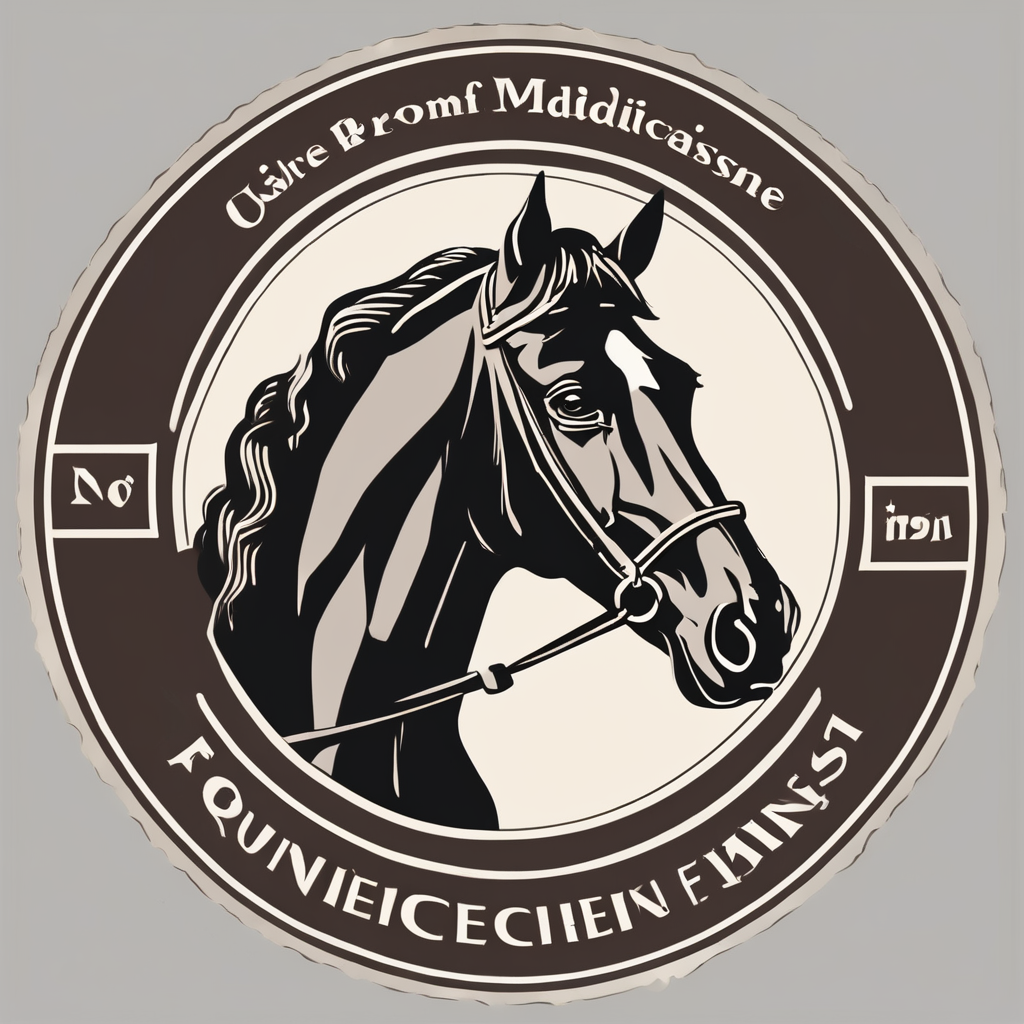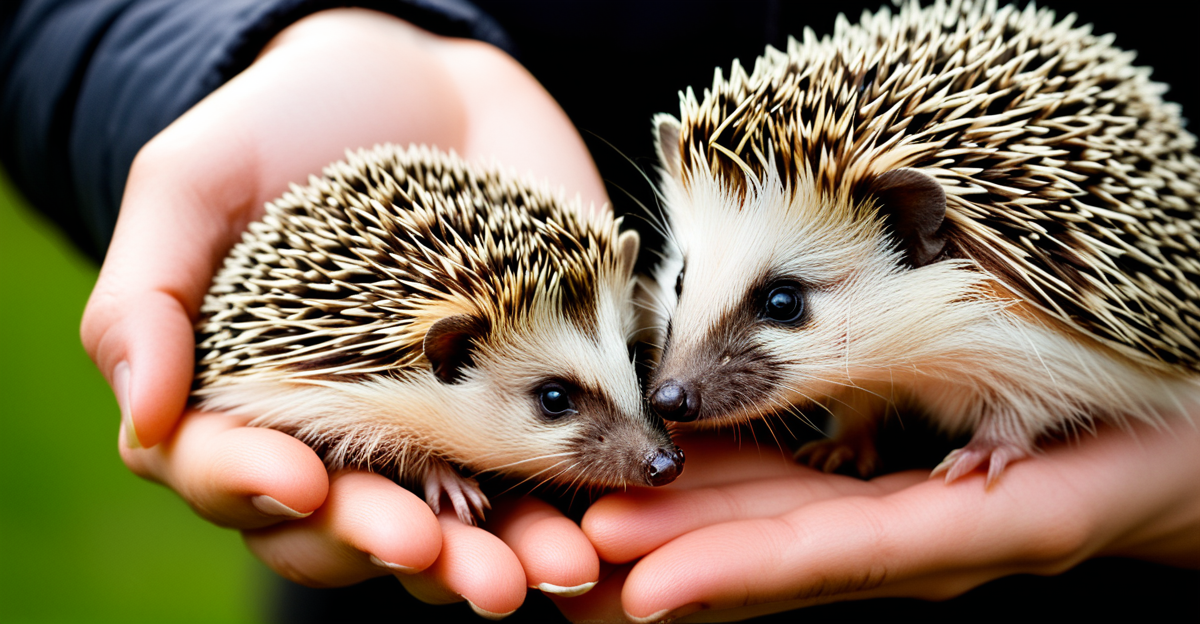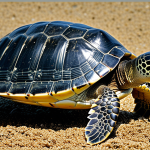Essential Dietary Needs of Rescued Hedgehogs
Understanding hedgehog nutrition UK is crucial when caring for rescued individuals. Compared to wild hedgehogs, rescued hedgehogs often require diets tailored to both restore health and maintain natural feeding habits. Their diet must closely replicate a species-appropriate diet that supports recovery while providing necessary nutrients.
Rescued hedgehog food in the UK differs from what wild hedgehogs forage. Wild hedgehogs primarily eat insects and other invertebrates, offering high protein and fibre. For rescues, a balance of protein, fat, fibre, and calcium is vital. High-quality commercial foods combined with supplements such as cooked lean meats or insects can meet these nutritional needs effectively.
Topic to read : Protecting marine turtles: innovative coastal development strategies in the uk to preserve nesting habitats
Providing an adequate, balanced diet boosts immune function, aids weight gain, and improves energy levels. A sudden change or inadequate nutrition may lead to illness or slowed recovery. Therefore, understanding the unique hedgehog nutrition UK requirements ensures the rescued hedgehog transitions safely while maintaining optimal health through tailored feedings and appropriate portion sizes.
Safe and Appropriate Foods for UK Hedgehogs
Choosing safe hedgehog foods is essential for the wellbeing of rescued animals. The UK feeding recommendations emphasise a species-appropriate diet built mainly on high-protein, low-fat options with moderate fibre. Suitable commercial foods formulated for hedgehogs provide balanced nutrition, supplying vital vitamins and minerals tailored to their digestive needs.
Also read : Exploring the influence of uk citizen scientists in tracking seasonal wildlife patterns
Natural diet supplements play a vital role. Insects such as mealworms, crickets, and earthworms align closely with a hedgehog’s natural prey, offering quality protein and nutrients. Cooked lean meats like chicken can also be included but must be free of seasoning or additives. Fibrous vegetables such as carrots and peas can be offered sparingly to aid digestion.
Calcium is critical to prevent metabolic bone disease; appropriate sources include crushed eggshells or supplements prescribed by experts. Avoid feeding hedgehogs dairy or processed human foods, as these are harmful.
Balancing protein, fat, fibre, and calcium exactly as outlined in UK feeding recommendations supports a rescued hedgehog’s recovery and long-term health. Mixing properly selected hedgehog pet food UK with safe natural options ensures a nutritious, palatable diet that encourages eating and vitality.
Essential Dietary Needs of Rescued Hedgehogs
Rescued hedgehogs require a carefully balanced species-appropriate diet tailored to their unique nutritional needs in the UK. Unlike wild hedgehogs that forage freely, rescued hedgehogs depend on controlled portions of rescued hedgehog food that closely mimic natural intake.
Key differences exist between wild and rescued diets. Wild hedgehogs primarily consume insects, providing high protein and fibre with natural variation. Rescued hedgehogs, however, need consistent protein levels, moderate fat, adequate fibre, and sufficient calcium to support recovery. A diet lacking balance risks malnutrition or delayed healing.
A well-formulated hedgehog nutrition UK plan supports immune function, encourages healthy weight gain, and maintains energy levels vital for rehabilitation. For example, high-quality commercial hedgehog food combined with natural supplements like insects and lean meats ensures nutrient completeness.
Frequent, smaller meals adhering to hedgehog nutrition UK standards help acclimate rescues to new feeding routines while avoiding stress. Understanding these dietary nuances is essential for establishing sustainable feeding that promotes health and longevity in rescued hedgehogs throughout the UK.
Essential Dietary Needs of Rescued Hedgehogs
Rescued hedgehogs require a species-appropriate diet tailored specifically to their unique nutritional needs in the UK. Unlike their wild counterparts, which consume a varied diet of insects and natural forage, rescued hedgehogs depend on carefully controlled rescued hedgehog food to ensure consistent intake of essential nutrients.
Key differences include the necessity for balanced protein, moderate fat, fibre, and calcium to support recovery and prevent deficiencies common in rescued individuals. This balance is fundamental in hedgehog nutrition UK to promote immune health, tissue repair, and healthy weight gain.
A typical species-appropriate diet for rescues combines high-quality commercial hedgehog food with natural supplements such as insects or lean meats, replicating their wild feeding habits while ensuring nutritional adequacy. This strategy mitigates risks associated with undernutrition or imbalanced feeding.
Supporting rescued hedgehog health further requires consistent feeding routines and portion control aligned with hedgehog nutrition UK principles, aiding smooth rehabilitation and long-term wellbeing. Understanding these dietary distinctions reinforces effective care for vulnerable UK hedgehogs during recovery.
Essential Dietary Needs of Rescued Hedgehogs
Rescued hedgehogs in the UK have distinct nutritional demands that differ from their wild counterparts. A species-appropriate diet is essential to meet these needs, focusing on balanced protein, fat, fibre, and calcium levels crucial for recovery and health maintenance. Unlike wild hedgehogs, whose diet fluctuates with seasonal availability, rescued individuals rely on consistent intake from rescued hedgehog food designed to support immune function and tissue repair.
Why is a balanced diet so important for rescued hedgehogs? Precise nutrition helps prevent malnutrition-related illnesses and promotes healthy weight gain, which is vital after trauma or illness. Inadequate protein or excess fat can disrupt metabolism, while insufficient calcium risks bone issues.
How do rescued diets differ? While wild hedgehogs consume varied insects and natural forage, rescued hedgehogs require carefully portioned meals combining high-quality commercial foods with natural supplements like mealworms or lean meats. This method replicates natural feeding habits, ensuring comprehensive nutrition aligned with hedgehog nutrition UK standards.
Consistent feeding schedules and portion control further enhance recovery, reducing stress and encouraging steady improvement. Maintaining these practices supports a resilient, thriving rescued hedgehog ready for eventual release or long-term care.
Essential Dietary Needs of Rescued Hedgehogs
Hedgehogs in the UK require a species-appropriate diet adapted specifically when rescued, as their dietary needs differ from wild individuals. Wild hedgehogs consume a diverse range of insects and natural forage, providing varied protein and fibre. In contrast, rescued hedgehogs need consistent and carefully measured nutrition through specialized rescued hedgehog food to prevent deficiencies common in rehabilitation.
The core of hedgehog nutrition UK focuses on balancing protein, moderate fat, fibre, and calcium. High protein supports tissue repair and immune function, while fibre assists digestion—critical for rescued hedgehogs recovering from illness or injury. Calcium inclusion is vital to avoid metabolic bone disease, a frequent concern in rescues.
A balanced diet aids in restoring energy and healthy weight gain. Feeding rescued hedgehogs smaller, frequent meals helps mimic natural feeding behaviour and mitigates stress during recovery. Precise portion control aligned with hedgehog nutrition UK guidelines ensures rescues receive adequate nutrients without risk of overload or malnutrition.
In summary, tailoring a species-appropriate diet with a deliberate balance of nutrients is key for rescued hedgehog health and rehabilitation success in the UK.
Essential Dietary Needs of Rescued Hedgehogs
Rescued hedgehogs in the UK require a species-appropriate diet that addresses their unique nutritional demands distinct from wild counterparts. Unlike wild hedgehogs that forage variably, rescued hedgehogs depend on carefully balanced rescued hedgehog food designed to ensure consistent intake of essential nutrients.
Their basic nutritional needs include high-quality protein to support tissue repair, moderate fat for energy, adequate fibre to maintain digestive health, and sufficient calcium to strengthen bones. The UK’s hedgehog nutrition framework emphasises these components to prevent malnutrition and promote recovery.
How does a balanced diet support rescued hedgehogs? Precise nutrient balance fosters immune system recovery, healthy weight gain, and sustained energy levels essential for rehabilitation. For instance, balanced feeding mitigates risks like metabolic bone disease caused by calcium deficiency or obesity from excess fats.
Differentiating from wild diets, rescued hedgehogs cannot self-regulate intake or forage diverse foods. Therefore, adhering to tailored feeding regimens using quality rescued hedgehog food aligned with hedgehog nutrition UK guidelines is vital. This approach stabilises metabolism, supports healing, and prepares hedgehogs for eventual release or prolonged care.










